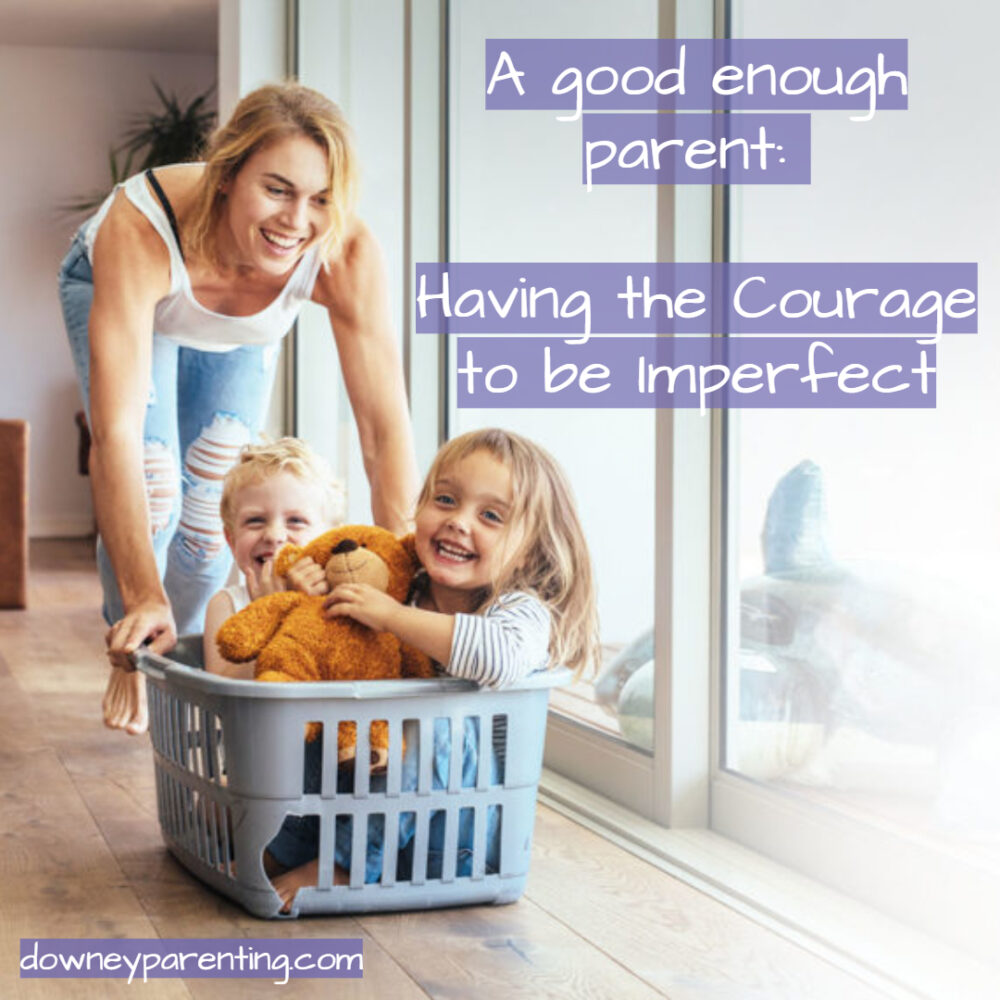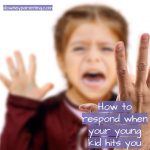
You are good enough, even when the voice in your head (you know, that mean inner critic) tells you differently.
Pre-kids you prepare and research everything. You watch how other parents raise their children and reminisce on your own childhood. You take mental notes of how you will do it differently…or “better.”
And then suddenly you’re knee deep in diapers, toys and schedules. Maybe you’re attempting to “balance” a career, parenting, a marriage, and a mortgage. Or maybe you’re navigating single parenthood or co-parenting. Or possibly you’ve adopted, after years of longing and planning.
And with the hustle and bustle you’ve lost some of those plans or goals. As your children age, self-doubt starts to creep in. Or possibly old ‘habits,’ (ways that you were parented that you vowed to never utilize) are now your go-to discipline method. And you start wondering, ‘Am I parenting “better?”‘
Good Enough
Your child doesn’t need “the best” or “perfect” parent. In fact, your child needs you to be imperfect, or good enough.
You may already know this, but do you find yourself continuing to beat yourself up? Or maybe you have thoughts similar to this:
- “I don’t play with my child as much as I should.”
- “I’m never _____________ enough.” (calm, certain, strong, good…)
- “If I ask for help it means I’m failing.”
- “I am a disappointment to my family.”
- “Am I doing this wrong?”
- “I am a bad parent.”
- “I’m a failure.”
Shame
Shame is a painful feeling. It’s a mixture of self-hate, humiliation and distress. When you begin to label yourself (e.g. I am a bad parent), you are experiencing shame. (For more in-depth information on shame, check out Brene Brown’s extensive research).
And shame holds you back. It’s one of the roadblocks to parenting success. When you feel shame you tend to give up. The inner critic inside you says not to seek help because “you’ll just fail anyway” or “you will disappoint your family.”
However, shame only lives in silence. Left unspoken, you can try to pretend everything is okay, but the inner feelings only get worse.
Shame does not survive when we are authentic and vulnerable with others.
Authenticity and Vulnerability
Since 2008 I have supported and educated parents on ‘best’ practices for parenting. I spent over a decade researching parenting styles/techniques, understanding cognitive, emotional, psychological and social child development and different therapeutic interventions. Peers and family have referred to me as the parenting expert when asking for my guidance.
And in the midst of my career I became a mom, a new mom. I struggled with breastfeeding. I felt like a failure when my baby would cry for hours nonstop. And as my child got a little older, I returned to work and felt like an impostor. How was I supposed to help guide and support other parents when I was “failing” at home with my own child?!
Hi shame! So glad you could join me (Can you sense my sarcasm?!). But seriously, shame is a painful feeling. And I was feeling that mixture of self-hate, humiliation and distress.
I called a good friend/colleague and met with my therapist and shared everything I was feeling. I was authentic and vulnerable. It was terrifying. And immediately afterward it felt like a weight was lifted off of me. Goodbye shame (for this moment)!
The truth was I wasn’t failing. I was a new mom. And navigating change for the first time is hard. And parenting is full of changes. As soon as I felt confident, another developmental milestone or a change in the household came along and it was “new” all over again.
The Courage to be Imperfect
Every day I am honored to work with courageous parents. I am grateful to have the ability to share a safe space for parents to be authentic and vulnerable. And I’m humbled to empower parents to strive to do better.
Kids don’t need a “perfect” or “the best” parent. Kids need an authentic, vulnerable, and courageous imperfect parent. They need a parent that strives for progress, not perfection.
Are you ready to be courageous? Click here to connect.


